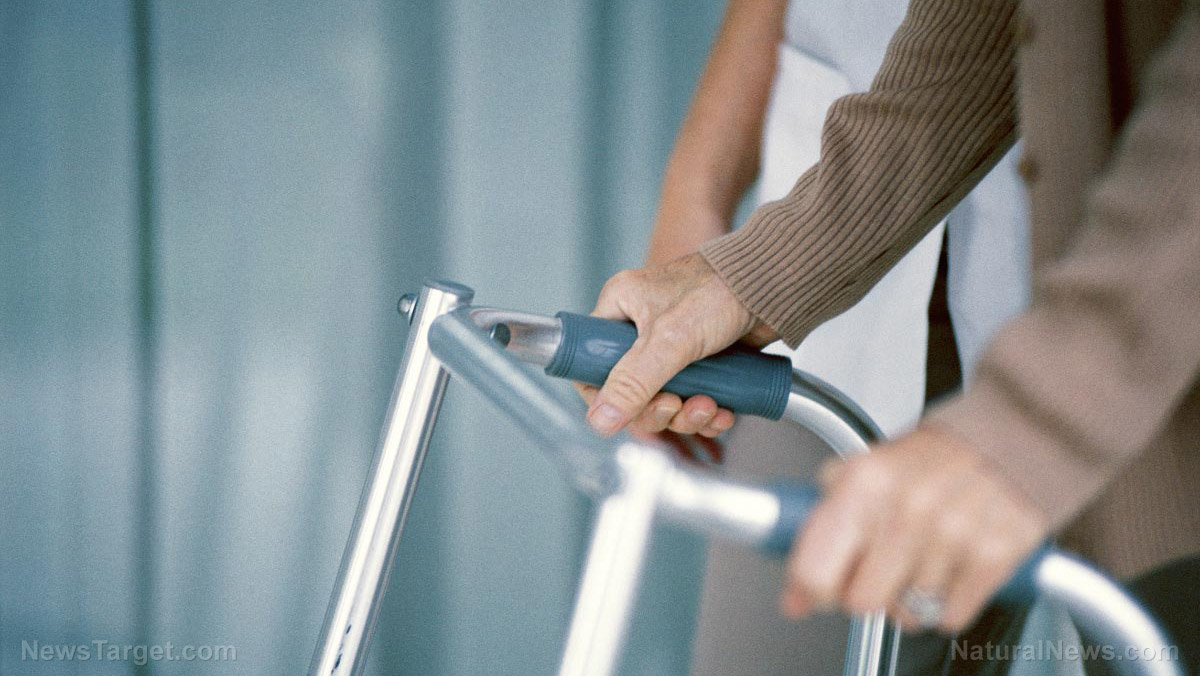Scientists discover a new association between endocannabinoids and exercise to treat depression
07/01/2020 / By Zoey Sky

Exercise helps you stay fit. Several studies also suggest that physical activity boosts mental health.
According to an article published in the journal Medicine & Science in Sports & Exercise, the link between exercise and the endocannabinoid system may be key to understanding how working out helps improve the mood of people with depression.
The study was conducted by researchers from Iowa State University (ISU), the University of Wisconsin-Madison, Medical College of Wisconsin and William S. Middleton Memorial Veterans Hospital.
What is the endocannabinoid system?
While experts have established that physical activity helps boost your mood, they have yet to fully understand how and why exercise makes people feel better.
Jacob Meyer, an assistant professor of kinesiology at ISU, says that the answer can be found in the endocannabinoid system (ECS).
The ECS is made up of naturally occurring cannabinoid molecules and their receptors. Activating these receptors seems to boost connections in the brain, possibly influencing pain and depression.
In the early 1990s, scientists studying tetrahydrocannabinol (THC), a popular cannabinoid, first identified the endocannabinoid system as “a complex cell-signaling system.” THC is a compound found in cannabis.
The ECS helps regulate various bodily functions and processes, such as appetite, memory, mood, reproduction and fertility and sleep. Even if you don’t use cannabis, the ECS remains active in your body.
The ECS, exercise and depression
For their study, the researchers measured the endocannabinoid levels of volunteers as well as the changes in their mood before and after exercise sessions with different levels of intensity.
The researchers found a significant boost in endocannabinoid levels and improvements in mood after the participants finished their prescribed moderate-intensity exercise.
Meyer suggested that understanding the link between endocannabinoid levels, mood and exercise may be the key to developing natural treatment options for depression. He also said that knowing how exercise affects the ECS can help researchers design “optimal exercise interventions.” (Related: Healing through exercise: Study finds physical activity can be used to prevent or treat depression.)
The implications of this study are important, especially for those looking for natural alternatives to conventional medications. Modern drugs like selective serotonin reuptake inhibitors (SSRIs), which are widely used antidepressants, are known to cause various side effects, such as agitation, digestive problems, nausea and restlessness.
Preferred and prescribed exercise
Upon examining data from 17 women with depression, the researchers also found that exercise intensity could alter endocannabinoid levels.
Each participant completed two 30-minute exercise sessions on a stationary bike. The first session was at a prescribed moderate intensity while the second session followed the participants’ own preferred intensity.
While both sessions improved mood, the researchers only found an increase in endocannabinoid levels for moderate-intensity exercise. They noted that there was no difference for the exercise session at preferred intensity.
This finding was surprising. Meyer explained that the differences could be due to variation in the preferred session. While some volunteers stayed consistently at lighter intensity, others completed intervals.
It’s possible that, due to the small sample size, the variation could have “obscured the relationship between the preferred intensity and change in endocannabinoids.”
These results, on the other hand,match the findings of an earlier study by Meyer and his colleagues, where they assessed the effect of exercise on brain-derived neurotrophic factor (BDNF) levels.
BDNF is a protein that regulates neuron growth and survival. People with depression usually have low levels of BDNF.
Meyer and his team found that women with depression who were prescribed an exercise session similar in intensity to their preferred exercise, had higher BDNF levels after exercise.
“Having someone else prescribe the exercise could be involved in both the psychological and biological response to exercise,” said Meyer.
The long-lasting effects of exercise on mood
Another interesting thing the researchers found was that the ECS likely has something to do with the mood-enhancing benefits of prescribed exercise.
After each exercise session, scientists collected blood samples for analysis. They also measured the volunteers’ mood and anxiety 10 minutes and 30 minutes post-workout.
Fluctuations in endocannabinoids were linked to the improvement in mood experienced by the participants 30 minutes after the moderate exercise.
Based on the overall results, Meyer and his team concluded that the effect of prescribed moderate-intensity exercise on mood occurs immediately and lasts for a long time and at a relatively sustained rate. The volunteers’ moods improved after the preferred exercise session, even though it didn’t change their endocannabinoid levels.
If you have depression, try to incorporate exercise into your regular routine to improve your mood and overall health.
Sources include:
Tagged Under: alternative medicine, beatdepression, endocannabinoid system, exercise, fitness, mental health, mind body science, natural cures, natural medicine, research, therapies, workouts
RECENT NEWS & ARTICLES
COPYRIGHT © 2017 MENS FITNESS FOCUS



















